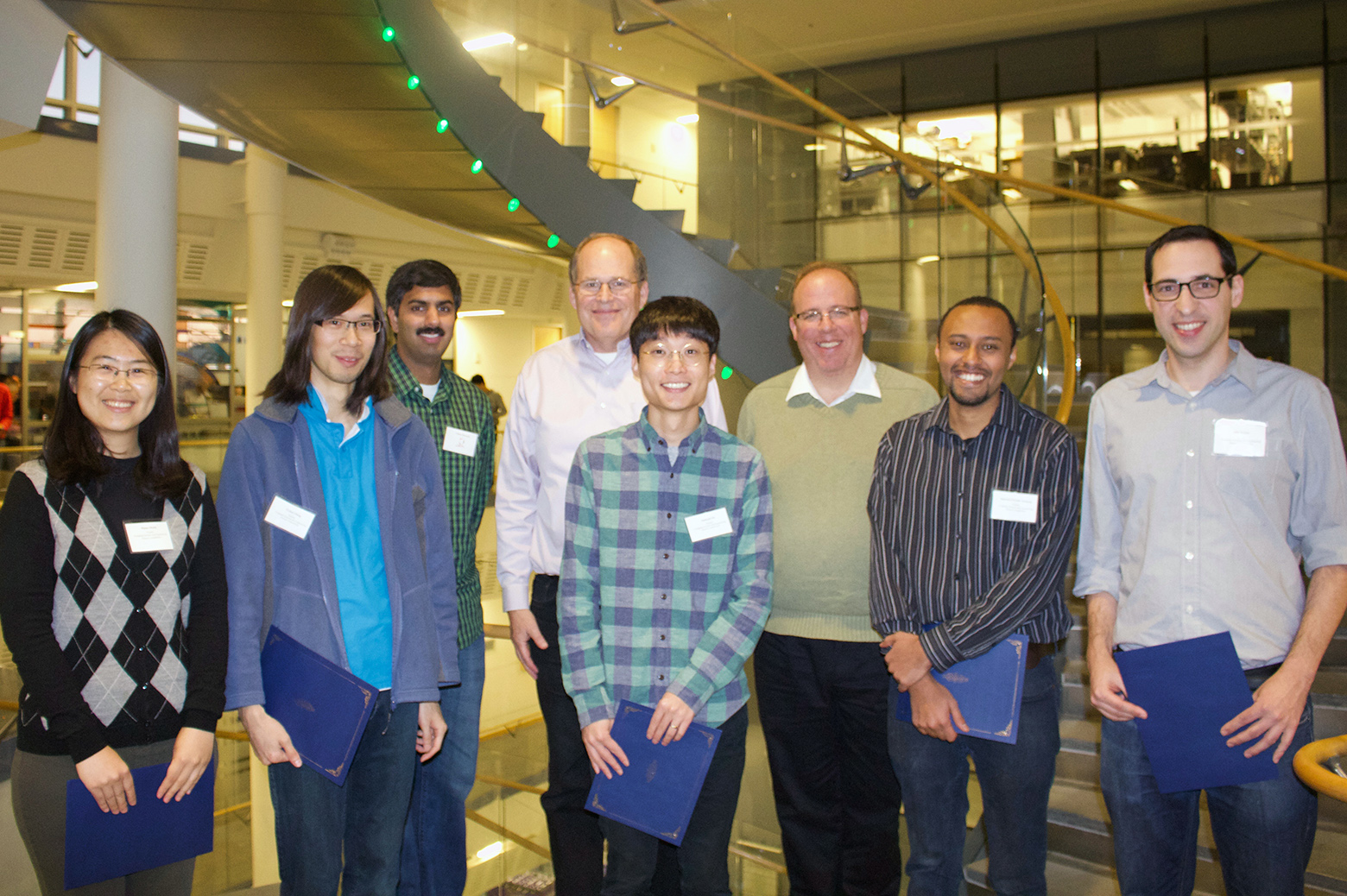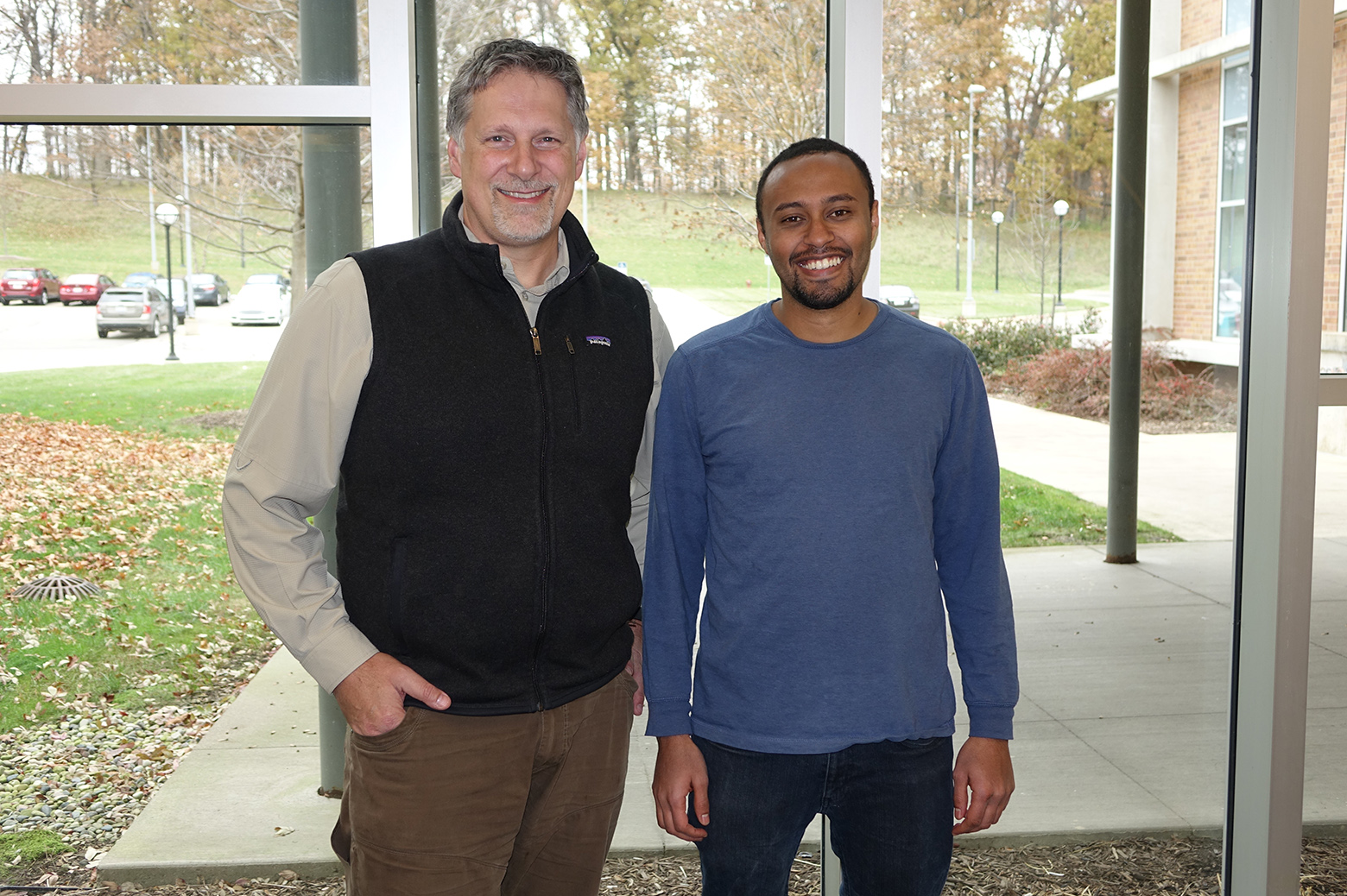2017 CSE Graduate Student Honors Competition Highlights Outstanding Research
The competition is the culmination of a process that narrows a field of entrants to a handful of finalists, each of whom gives a summary presentation on an area of their research.

 Enlarge
Enlarge
CSE held its fourteenth annual CSE Graduate Student Honors Competition on November 8, 2017. The competition is the culmination of a process that narrows a field of entrants to a handful of finalists, each of whom gives a summary presentation on an area of their research. CSE faculty and an industry sponsor from Toyota Research Institute rank the finalists’ presentations.
Top Presentation Chosen
The top presentation in the 2017 competition was “Analyzing and Enhancing the Security of Modern Memory Systems,” given by Salessawi Ferede Yitbarek, who represented CSE’s Hardware research area. His presentation summarized findings from the paper he coauthored entitled “Cold Boot Attacks are Still Hot: Security Analysis of Memory Scramblers in Modern Processors.”

 Enlarge
Enlarge
About the Research
A computer’s memory (DRAM) stores data that computer programs are actively using. These memories are conventionally expected to lose their contents immediately after losing power. However, Halderman et. al. have shown that a DRAM module can be frozen to give it sufficient retention time even after power is removed. This enables an attacker with physical access to a locked or password protected device to either re-read the memory after reboot, or to unplug and transfer the DRAM to a separate machine for extracting sensitive data. This process is commonly referred to as a cold boot attack, and has been shown to be an effective attack vector for extracting disk encryption keys out of locked computers and phones.
Most modern systems incorporate some form of data scrambling into their DRAM interfaces which makes cold boot attacks challenging. While first added as a measure to improve signal integrity and reduce power supply noise, these scramblers today serve the added purpose of obfuscating memory contents. The work Salessawi presented during the CSE Honors Competition provided an analysis of the memory obfuscation features currently deployed in the latest commercial processors and demonstrated that they do not provide sufficient protections against cold boot attacks. The presentation also described how low overhead stream ciphers can be integrated into the memory controller hardware to create strongly encrypted DRAMs that incur zero performance overhead.
This work was supported in part by the Center for Future Architectures Research (C-FAR), one of the six STARnet centers funded by MARCO and DARPA.
Runners Up in 2017
Runners up in this year’s competition were:
Yi-Jun Chang
Theory of Computation
“Complexity of Local Distributed Graph Problems”
Junhyuk Oh
Artificial Intelligence
“Zero-Shot Task Generalization with Multi-Task Deep Reinforcement Learning”
Ofir Weisse
Software Systems
“Securing the Cloud with Emerging TEE Technologies”
Biqiao Zhang
Interactive Systems
“Predicting the Distribution of Emotion Perception: Capturing Inter-rater Variability”
“We were very impressed by the breadth and depth exhibited in the students’ presentations,” said Toyota Research Institute Research Scientist Vishnu Desaraju, who served as a judge in the competition. “We hope that these talented students will consider internship and other opportunities at TRI.”
 MENU
MENU 
